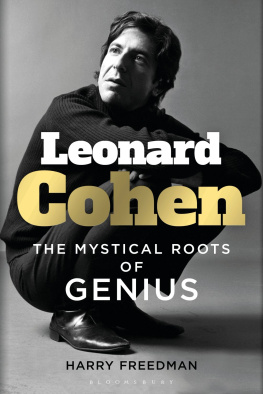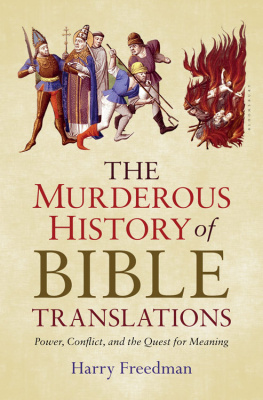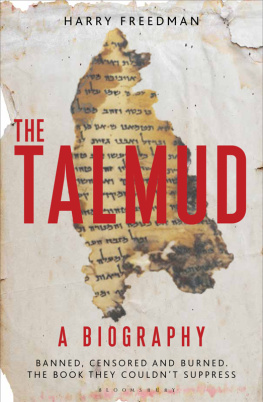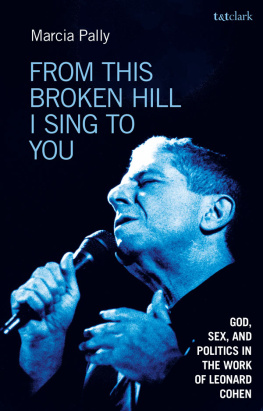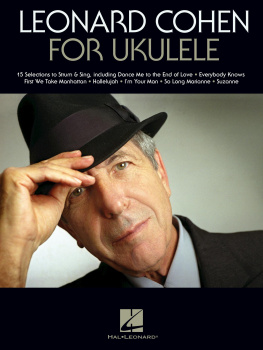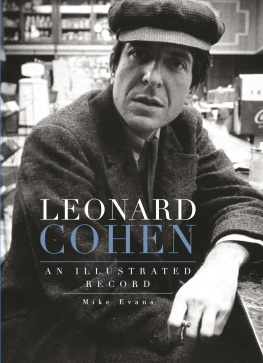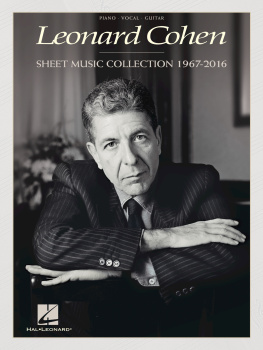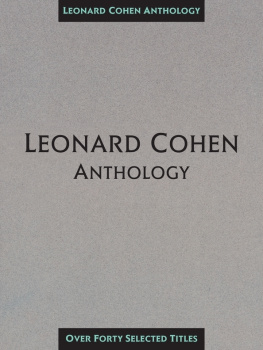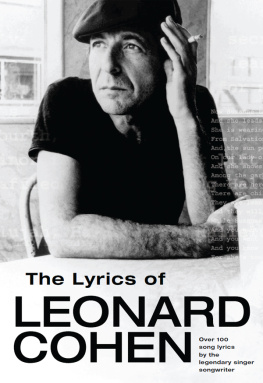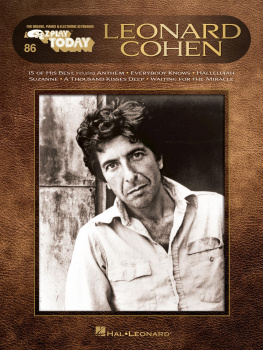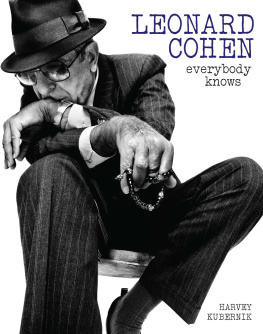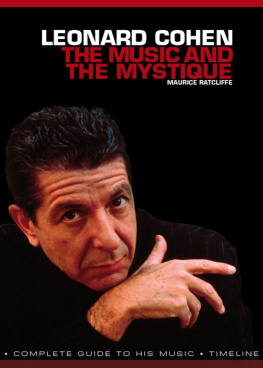Harry Freedman - Leonard Cohen: The Mystical Roots of Genius
Here you can read online Harry Freedman - Leonard Cohen: The Mystical Roots of Genius full text of the book (entire story) in english for free. Download pdf and epub, get meaning, cover and reviews about this ebook. year: 2021, publisher: Bloomsbury Continuum, genre: Detective and thriller. Description of the work, (preface) as well as reviews are available. Best literature library LitArk.com created for fans of good reading and offers a wide selection of genres:
Romance novel
Science fiction
Adventure
Detective
Science
History
Home and family
Prose
Art
Politics
Computer
Non-fiction
Religion
Business
Children
Humor
Choose a favorite category and find really read worthwhile books. Enjoy immersion in the world of imagination, feel the emotions of the characters or learn something new for yourself, make an fascinating discovery.
- Book:Leonard Cohen: The Mystical Roots of Genius
- Author:
- Publisher:Bloomsbury Continuum
- Genre:
- Year:2021
- Rating:3 / 5
- Favourites:Add to favourites
- Your mark:
Leonard Cohen: The Mystical Roots of Genius: summary, description and annotation
We offer to read an annotation, description, summary or preface (depends on what the author of the book "Leonard Cohen: The Mystical Roots of Genius" wrote himself). If you haven't found the necessary information about the book — write in the comments, we will try to find it.
Leonard Cohen taught us that even in the midst of darkness there is light, in the midst of hatred there is love, with our dying breath we can still sing Hallelujah. - The late Rabbi Lord Jonathan Sacks
Among the finest volumes on Cohens life and lyrics ... An exploration which would have intrigued and engaged Leonard himself. - John McKenna, writer and friend of Leonard Cohen
Harry Freedman uncovers the spiritual traditions that lie behind Leonard Cohens profound and unmistakable lyrics.
The singer and poet Leonard Cohen was deeply learned in Judaism and Christianity, the spiritual traditions that underpinned his self-identity and the way he made sense of the world. In this book Harry Freedman, a leading author of cultural and religious history, explores the mystical and spiritual sources Cohen drew upon, discusses their original context and the stories and ideas behind them.
Cohens music is studded with allusions to Jewish and Christian tradition, to stories and ideas drawn from the Bible, Talmud and Kabbalah. From his 1967 classic Suzanne, through masterpieces like Hallelujah and Who by Fire, to his final challenge to the divinity, You Want It Darker he drew on spirituality for inspiration and as a tool to create understanding, clarity and beauty.
Born into a prominent and scholarly Jewish family in Montreal, Canada, Cohen originally aspired to become a poet, before turning to song writing and eventually recording his own compositions. Later, he became immersed in Zen Buddhism, moving in 1990 to a Zen monastery on Mount Baldy, California where he remained for some years. He died, with immaculate timing, on the day before Donald Trump was elected in 2016, leaving behind him a legacy that will be felt for generations to come.
Leonard Cohen: The Mystical Roots of Genius looks deeply into the imagination of one of the greatest singers and lyricists of our time, providing a window on the landscape of his soul. Departing from traditional biographical approaches, Freedman explores song by song how Cohen reworked myths and prayers, legends and allegories with an index of songs at the end of the book for readers to search by their favourites. By the end the reader will be left with a powerful understanding of Cohens story, together with a far broader insight into the mystical origins of his inimitable work.
Harry Freedman: author's other books
Who wrote Leonard Cohen: The Mystical Roots of Genius? Find out the surname, the name of the author of the book and a list of all author's works by series.

